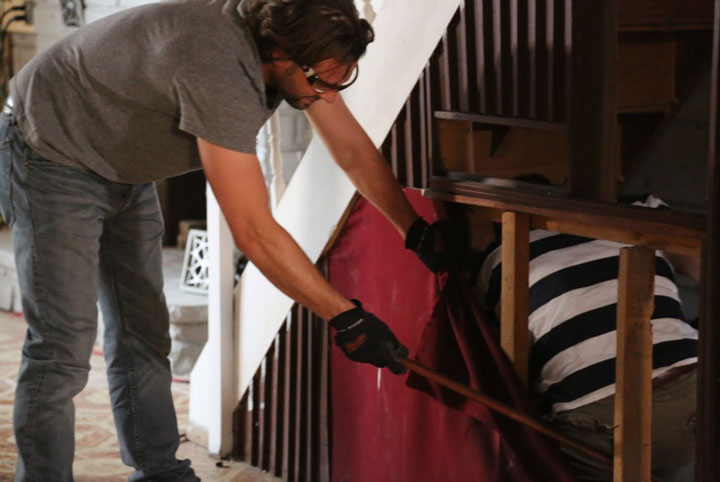
Published February 27, 2018, Updated February 14, 2021, Updated April 14, 2022
If you’re buying a house and trying to decide if you should get a home inspection I can make it really easy for you – the answer is YES. In today’s market it’s not uncommon for people to forgo a home inspection in order to make their offer more appealing to the seller, but this is a huge gamble. You may get the house, but you might also get a whole host of unexpected and expensive problems with it. If you want to decrease your chances of getting burned when buying a home, an inspection is key.
When you don’t get a home inspection you’re relying on the seller to disclose everything that’s wrong with the house. This is risky because some sellers just won’t do it, while others genuinely might not know. Having an impartial expert come in and evaluate the house is the best way to get an honest, informed opinion.
Having said that, getting a home inspection is not a guarantee that you’ll uncover every little problem. The home inspection process is far from perfect. Here’s what you need to know.

What Does a Home Inspector Do?
A home inspector will evaluate the interior and exterior of a structure, looking for several things (including but not necessarily limited to the following list). A good inspector will:
- Check all electrical outlets, switches and the fuse/breaker panel.
- Flush toilets and turn on faucets to make sure they work and to determine water pressure.
- Open and close all the windows.
- Check the floors, walls and ceilings for any defects.
- Check the basement or foundation for any water leakage.
- Inspect the heating and cooling systems.
- Check out the attic and any crawl spaces to assess insulation.
- Examine in the closets and under the stairs.
- Inspect chimneys and flues (in some cases chimneys require an additional inspection from a specialist).
- Inspect roof and eavestroughs.
- Look around the entire exterior of the building structure looking for signs of weather damage.
- Look for any issues with exterior decks and railings.
- Inspect the foundation looking for cracks or other issues.
- Check the grading around the foundation.
What Does a Home Inspector NOT Do?
It’s really important to recognize that home inspectors aren’t magicians and can’t see behind the walls. They’re not able to put holes in walls or rip up floors, so in many cases they can only give you their best guess about what lies beneath. I’ve worked on countless houses where there were huge renovation surprises, and people have come up to me afterwards and asked “Why didn’t the homeowners get a home inspection?” Often times they did. But the problems we found were hidden behind the walls and not detected by the inspection. This is why it’s important to have an emergency fund put aside in case you find things like knob and tube wiring, or other must-do fixes.
How to Find a Home Inspector
The first rule of home inspections is to hire the inspector yourself – don’t have your real estate agent do it. Your real estate agent should be able to provide you with a list to choose from, but you’re not obligated to use anyone from it. If you’re not sure how to go about it, recommendations from friends and neighbours are always a good place to start. Here are some other resources to help you out:
- Canadian Association of Home and Property Inspectors (CAHPI)
- Ontario Association of Home Inspectors (OAHI)
How Long Does a Home Inspection Take?
Typical inspections take anywhere from one to three hours depending on the size of the home. Make sure you’re there at the time of the inspection so that you can hear everything first hand and ask any questions. Even though the inspector will provide you with a report afterwards, there’s no substitute for seeing everything with your own eyes.
Home Inspection Tips
The most important thing I can recommend is to take the inspection report seriously. By the time the inspection happens people are often already emotionally attached to the house, and they have a tendency to brush off the results.
If the results are not what you were expecting, you can ask the seller to fix the problems or you can ask for money so you can make the repairs yourself. If they refuse you really need to think about what you’re getting into and if your budget can handle it. If you want to be successful in real estate, you need to make smart, but sometimes difficult, decisions.
Scott McGillivray is a real estate expert and host of HGTV Canada’s Scott’s Vacation House Rules, Scott’s Own Vacation House, Income Property and Moving the McGillivrays.
Related: Scott McGillivray Unveils a Hygge Ski Chalet For All-Seasons
HGTV your inbox.
By clicking "SIGN UP” you agree to receive emails from HGTV and accept Corus' Terms of Use and Corus' Privacy Policy.



